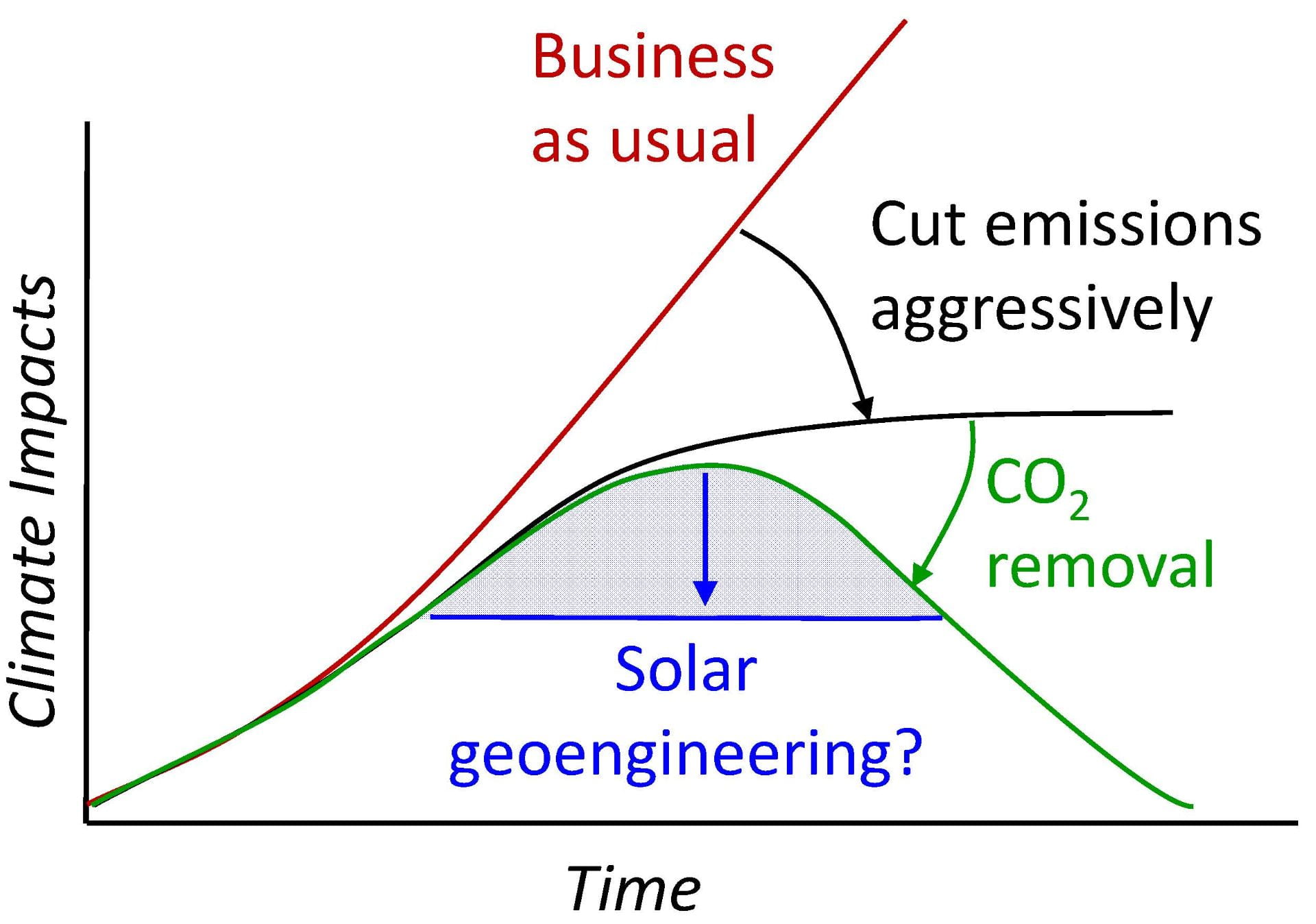About
Welcome! Our research is focused on climate engineering (also called solar geoengineering and solar radiation management), bringing a system-engineering perspective to this challenge, and with the ultimate goal of informing policy and societal decisions.
See research page for project details and opportunities.
For a broad overview of climate engineering, read our primer: www.srmprimer.org
Contact info:
561 Upson Hall, Hoy Road, Ithaca NY 14850
(650) 619-9341
dgm224@cornell.edu
What is climate engineering?
There are many ideas for deliberately modifying the climate (known as Solar Geoengineering, Climate Intervention, or Climate Engineering). Our team focuses on stratospheric aerosol injection (SAI), which would reflect a small amount of sunlight, cooling the climate and reducing many impacts of climate change. Reflecting sunlight would affect the climate system differently from greenhouse gases, leading to concerns about novel or unknown climate responses. It also raises numerous sociopolitical issues.
Why consider it?
Reducing greenhouse gas emissions is an essential part of any response to climate change, but is not enough to prevent severe climate impacts, even under the most optimistic decarbonization scenarios. Carbon dioxide removal (CDR) is also an essential part of a long-term solution, but will take time and is untested at scale. Climate Engineering, in addition to emission-reductions and CDR, may be the only available pathway to limit many climate impacts over the coming decades. However, current knowledge is insufficient to understand its risks.
Key Questions
What are the impacts? How do those depend on the scenario and the deployment strategy? How uncertain are model projections? Climate model simulations conducted to date are inadequate to address these questions. It is essential that nascent governance and policy conversations are informed by strong scientific evidence.
How do we define and prioritize an overall research agenda? Which uncertainties are most important for determining outcomes, and what is the best way to resolve these? There is currently no structured federal research program, and scoping one will require a more systematic assessment of uncertainty.
Our Perspective
Our team focuses on understanding geoengineering as not just a science problem, but as a Mission-driven, engineering-design challenge that is inseparable from its societal context.
- First, research needs to be directed and prioritized, to address critical knowledge gaps and illuminate new ones, develop research capacity, and assess technical and political feasibility.
- Second, SAI isn’t just a science problem, but an engineering challenge to be designed: impacts depend on choices such as latitude, altitude, and season of injection, as well as the type of aerosol itself; we also need a systematic approach to manage uncertainty.
- Third, integrating research with ongoing governance efforts ensures policy relevance and impact. Physical science research needs to inform, and also be informed by the sociopolitical dimensions.

